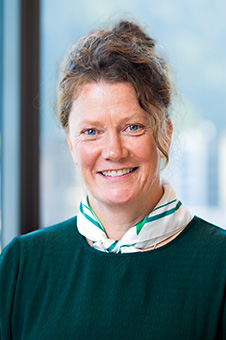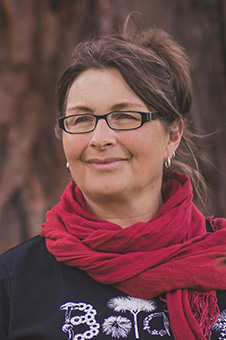A new national freshwater policy is causing tension for Otago farmers, as many of the new regulations oppose their perception of a “good farmer” and good farming practices, University of Otago research shows.
The National Policy Statement for Freshwater Management was implemented in September 2020 and received a negative reaction from the farming community as it did not suit the diversity of all farms in Aotearoa.
It was deemed especially unworkable in colder parts of the country and on topographically diverse sheep and beef farms.

Professor Sara Walton.
Lead author Professor Sara Walton, of the Department of Management, says this led researchers to interview nine farmers from around Otago in late 2021 and early 2022 about how they saw their role in relation to shifting societal expectations around environmental goals in farming.
Researchers aimed to explore the conflicts between being a good farmer and complying with the policy, and the potential unintended consequences of the policy on rural communities.
“Farmers mentioned factors such as understanding their farm environment, conservative management of resources and giving back to the communities in their definition of good farmers,” Professor Walton says.
“They also noted tensions between the impacts of the new freshwater regulations on farm practices and their identity as a good farmer.”
The new regulations include mandatory fencing and destocking of all freshwater bodies, restrictions on the location and duration of winter forage crops, and caps on nitrogenous fertiliser use.
Research results, published in Agriculture and Human Values, show Otago farmers dislike the blanket rules that apply to all farms and would prefer a more targeted approach with relevant farmers in problem areas was employed.
“The one-size fits all nature of the policy has the potential to create counterproductive outcomes to the founding concept of Te Mana o Te Wai, which recognises the importance of freshwater health,” Professor Walton says.

Associate Professor Janice Lord.
Co-author Associate Professor Janice Lord, of the Department of Botany, says there is a discontent around the regulations and a perceived lack of appreciation by policy makers of the challenges of farming in some parts of the country.
“The new rules have a real chance of producing some negative results by effectively regulating farmers into a corner and not taking localised factors into account,” she says.
This could include:
- conversion of previously grazed grassland-wetland systems to forestry,
- the possible draining of wetlands before they are classed as significant,
- the potential for weeds to overtake newly fenced off waterways,
- intensification of winter cropping and transportation of animals due to land not meeting unrealistic and impractical constraints,
- increased mental health issues as farmers struggle to meet impractical regulatory standards.
Professor Walton says being a good farmer was an important part of farmers’ identity and had been for many years.
The concept has moved away from being purely economic and instead conveys a set of shared social norms and understandings.
“Complying with the changing regulations was found to be a tension in their desire to remain being seen as a good farmer.”
Publication details:
Conflicts between being a “Good Farmer” and freshwater policy: A New Zealand case study
Sara Walton, Janice Lord, Aleisha Lord and Viktoria Kahui (all of the University of Otago)
Agriculture and Human Values
For more information please contact:
Professor Sara Walton
Department of Management
University of Otago Business School
Email sara.walton@otago.ac.nz
Associate Professor Janine Lord
Department of Botany
University of Otago
Tel +64 3 479 7577
Email janice.lord@otago.ac.nz
Jessica Wilson
Adviser Media Engagement
University of Otago
Tel +64 3 479 3147
Email jessica.wilson@otago.ac.nz